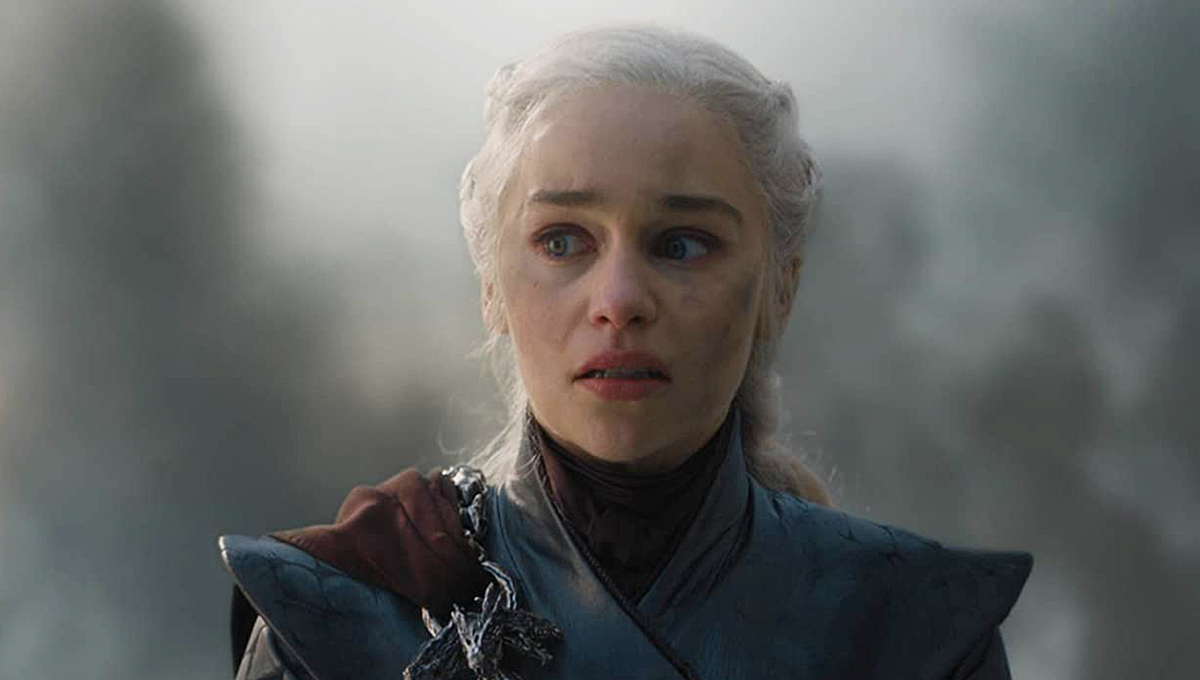Game of Thrones’ divisive series finale is nearly a year old now, having premiered—ten months ago to the day—on May 19, 2019. As sobering as that may be in a “time flies” kind of way, it has allowed everyone to objectively reflect on things. Indeed, now that the smoke and ash has cleared from our proverbial King’s Landing, star Emilia Clarke—whose character, Daenerys Targaryen, underwent a rapidly radical trajectory turn—is admitting her disappointment in not only her character’s fate, but the final season’s overall approach.
While more definitive judgments on HBO’s Game of Thrones will likely be left to posterity, it has been long enough for Clarke—now free from the show’s publicity process—to offer her feelings about the finale in a recent interview for Sunday’s edition of U.K. paper The Times, brandishing the candor befitting of the Mother of Dragons… at least before she suddenly turned into a genocidal despot and sudden scourge of the Seven Kingdoms who had to be put down by Kit Harington’s Jon Snow. As she laments:
“Yeah, I felt for her. I really felt for her. And yeah, was I annoyed that Jon Snow didn’t have to deal with something? He got away with murder — literally.”
As she further explains on initially keeping those opinions to herself:
“I knew how I felt [about the ending] when I first read it, and I tried, at every turn, not to consider too much what other people might say,” Clarke continued, “But I did always consider what the fans might think — because we did it for them, and they were the ones who made us successful, so it’s just polite, isn’t it?”
It’s a rather abrupt divergence from her contemporaneous comments, in which she defended the story direction, pointing to the idea that it was consistent with the more harsh forms of vengeance Daenerys delivered upon her enemies; acts that range from crucifixion, burning them alive to imprisoning them in a dark sealed room for eternity. Yet, despite the harshness of her actions, there was at least some sense of just deserts being delivered, at least when viewed through the show’s quasi-medieval lens.
